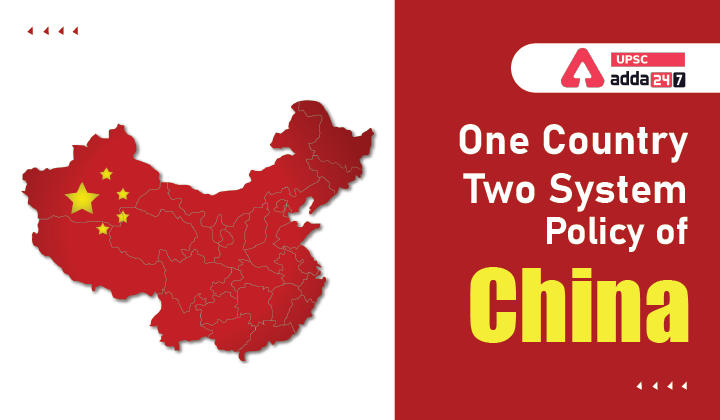Table of Contents
One country two systems UPSC: Relevance
- GS 2: Effect of policies and politics of developed and developing countries on India’s interests, Indian diaspora.
One country two systems: Context
- Recently, Chinese President has defended the One Country, Two System Policy by saying that Hong Kong can’t afford to be destabilised.
One country two systems policy: Key points
- The President has also asserted that Hong Kong’s “true democracy” started after the city’s handover to China from colonial Britain 25 years ago.
- He also said that there was no reason to change the “one country, two systems” principle, which was gives Hong Kong a high degree of autonomy after the 1997 handover.
- 01 July 2022 marks the halfway point of the 50-year governance model agreed by Britain and China under which Hong Kong would keep autonomy and key freedoms.
Hong Kong independence
- Hong Kong has undergone significant change since Xi’s last visit in 2017, when he warned against any challenge to Chinese sovereignty.
- Two years later, the city was convulsed by months of pro-democracy protests that sometimes turned violent, with some protesters calling for Hong Kong independence.
- Beijing responded by imposing the national security law, saying it was necessary to restore order.
- Since then, almost 200 people have been arrested on charges of subversion, secession, terrorism or collusion with foreign forces, including journalists and many of Hong Kong’s most prominent pro-democracy figures.
What is one country two systems Taiwan?
- The one country two system policy means that the Hong Kong and Macau Special Administrative Regions, both former colonies, can have different economic and political systems from that of mainland China, while being part of the People’s Republic of China.
- The British had taken control of Hong Kong in 1842 after the First Opium War.
- The One Country Two Systems policy was originally proposed by Deng Xiaoping shortly after he took over as the president of China in the late 1970s.
- Deng’s plan was to unify China and Taiwan under the One Country Two Systems policy. He promised high autonomy to Taiwan.
- China’s nationalist government, which was defeated in a civil war by the communists in 1949, had been exiled to Taiwan.
- Under Deng’s plan, the island could follow its capitalist economic system, run a separate administration and keep its own army but under Chinese sovereignty.
- Taiwan, however, rejected the Communist Party’s offer.
- The island has since been run as a separate entity from the mainland China, though Beijing never gave up its claim over Taiwan.
Read current affairs for UPSC





 TSPSC Group 1 Question Paper 2024, Downl...
TSPSC Group 1 Question Paper 2024, Downl...
 TSPSC Group 1 Answer key 2024 Out, Downl...
TSPSC Group 1 Answer key 2024 Out, Downl...
 UPSC Prelims 2024 Question Paper, Downlo...
UPSC Prelims 2024 Question Paper, Downlo...
